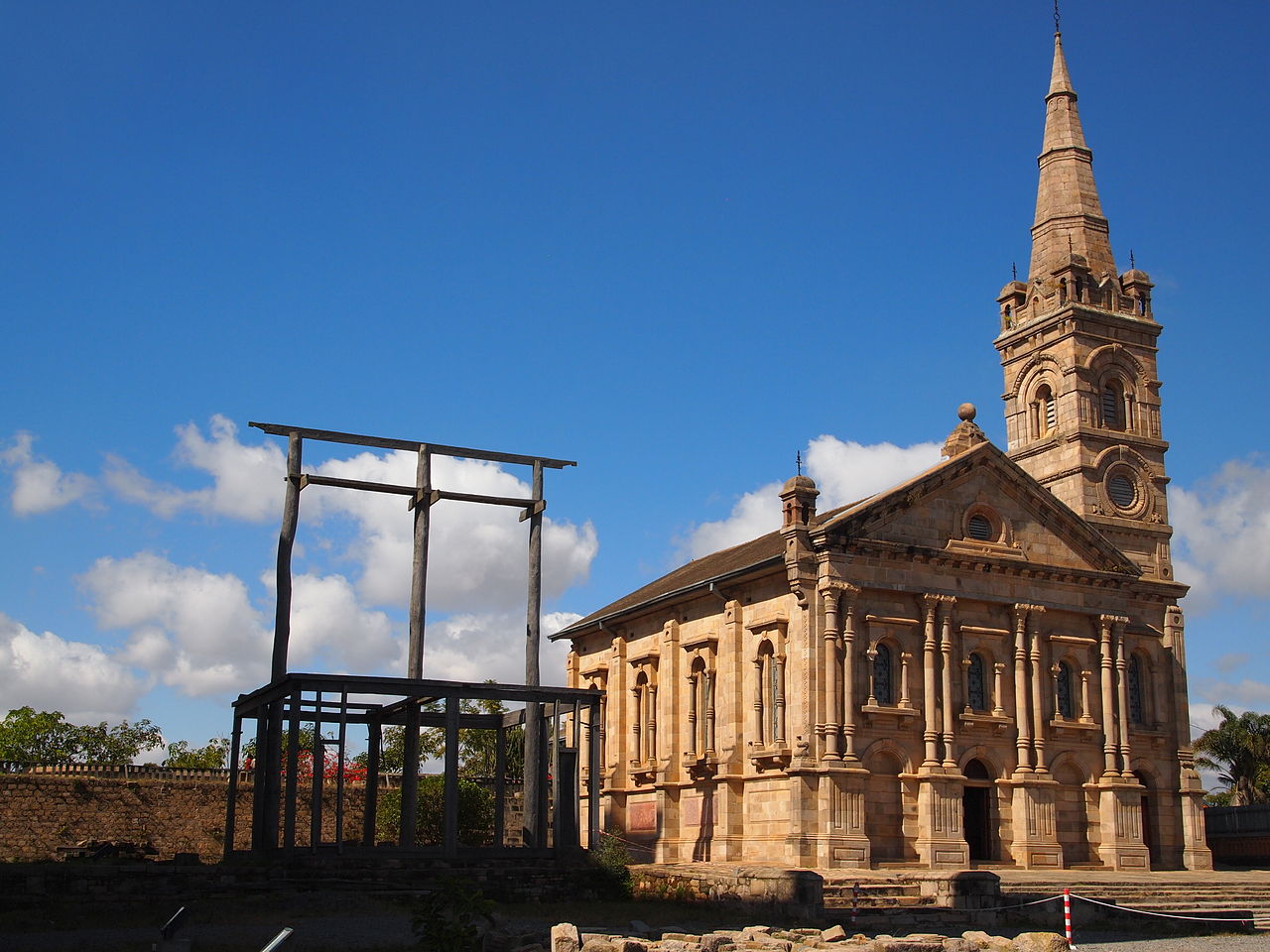 |
| Sea mangos (Tangena) the poisonous fruit used in the notorious trial by ordeal |
Ranavalona holds a unique place in Malagasy history as one of the island's longest reigning monarchs and arguably the most impactful ruler in its history. Ranavalona's rule saw radical shifts in every major contentious political matter in 19th century Madagascar. The queen is also one of the most notorious leaders not only from Madagascar, but one of the most infamous political leaders of any polity on earth. However, recent historical scholarship has shifted towards a more nuanced perspective of the "Mad Queen of Madagascar."
Much of Ranavalona's negative reputation can be traced back to her falling out with the London Missionary Society. While Ranavalona maintained positive relations with the organization during the early segment of her reign, her perception shifted. She became increasingly concerned that the rising popularity of heavily syncretized Christianity in her kingdom would lead to a decline in veneration of the Merina ancestors, and subsequently a loss of faith in the ideological system which supported her royal legitimacy. Ranavalona banned Christian baptisms and ordered existing concerts to return to their original faith. While most Malagasy christians obeyed the coercive order, the few who refused to de-convert were treated to harsh punishments, often escalating to the death penalty.
 |
| An illustration of the persecution of Christians in Madagascar |
Ranavalona's reign also saw the widespread reimplementation of Tangena, a trial by ordeal in which the accused was made to consume a toxic fruit, and the toxin's effect on their body was used to gauge their guilt. The Tangena Ordeal had an estimated fatality rate of between 30 to 70 percent, with the danger varyingly immensely by the ripeness and dilution of the fruit.
 |
| An artist's render of a Tangena trial: 1873 |
Ranavalona's reign had an interesting character that defined easy classification. While the brutality of Ranavalona's reign was undoubtedly exaggerated, it was brutal nonetheless. It was also a period of rapid, if unsustainable, economic and technological progress.
To her credit, Ranavalona is often praised for her defense of Madagascar's sovereignty against foreign incursions. In addition to defeating a French invasion in 1829, Ranavalona's army also defeated a joint Anglo-French intervention force in 1845. When British and French soldiers attempted an amphibious landing at Toamasina, they were rebuked and routed by the garrison of the city's fort.
 |
| The Fortress at Toamasina: 1845 |
However, Ranavalona would soon find out that the greatest threat to her sovereignty did not manifest in the form of foreign armies, but rather in a group of scheming advisors. We will focus on the Lambert plot and the final severing of the relationship between Ranavalona and the Europeans in our next episode.




















